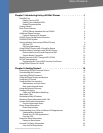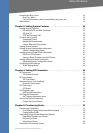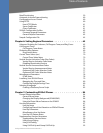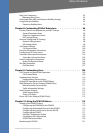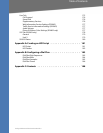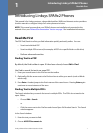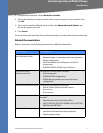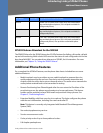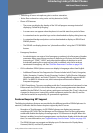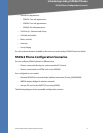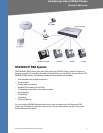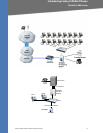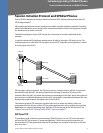
Linksys SPA9x2 Phone Administration Guide Cisco Confidential--First Draft3
Getting Started
Introducing Linksys SPA9x2 Phones
For additional documents and tools related to SPA9x2 phones, see linksys.com and its partner
sections. For Europe, Middle East and Africa, see linksys-voip.eu (VARs) and linksys-itsp.com
(service providers).
For troubleshooting information, go to linksys.com and click on Support > Technical Support.
Getting Started
Before you can configure a SPA9x2 phone, you need to install it by connecting the phone to a
network (Ethernet) port. For detailed installation information, see the Linksys SPA9x2 Phone User
Guide.
To get started viewing and configuring phones, see:
• ”Basic Phone Features” section on page 3
• ”Additional Phone Features” section on page 4
• ”SPA9x2 Phone Configuration Scenarios” section on page 6
• ”SPA9000 IP PBX System” section on page 7
• ”Session Initiation Protocol and SPA9x2 Phones” section on page 9
• ”Using SPA9x2 Phones with a Firewall or Router” section on page 10
• ”Network Address Translation and SPA9x2 Phones” section on page 11
• ”Simple Traversal of UDP Through NATs (STUN)” section on page 13
• ”SIP-NAT Interoperation” section on page 13
• ”Using SPA9x2 Phones in a VLAN” section on page 14
Basic Phone Features
All SPA9x2 phones support:
• Power over Ethernet (PoE) (802.3af-compliant)
• Two 100 BaseT Ethernet LAN ports (one PC and one WAN)
• Quality of service (QoS)
• Phone power consumption: 6 Watts
(varies)
NOTE: If you are not using a PoE switch, you can use the PA100 power supply.
Phone model differences are shown in the following table:



